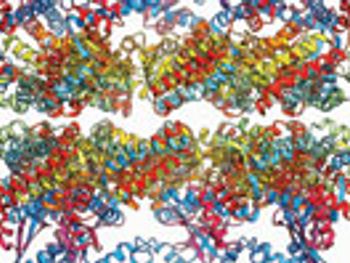
The directorate highlights achievements accomplished during the year of its 50th anniversary.

The directorate highlights achievements accomplished during the year of its 50th anniversary.

The draft guidance document clarifies chemistry, manufacturing, and controls information for marketing applications.

Boehringer Ingelheim announces FDA approval of Stiolto Respimat inhaler for the treatment of COPD.

The House Energy and Commerce Committee gave unanimous approval to the landmark 21st Century Cures Act reform bill on May 21, 2015.

The former New England Compounding Center will pay $200 million to victims and creditors for the 2012 outbreak of meningitis that killed 64.

Raplixa fibrin sealant, the first approved spray-dried biologic, is a hemostatic agent that helps control bleeding from small blood vessels during surgery.

FDA concludes Orkambi demonstrates a clinical benefit over placebo, but questions the magnitude of the improvement.

The agency publishes draft guidance answering industry questions about the Biologics Price Competition and Innovation Act.

The US Court of Appeals granted Amgen’s request to block Novartis’ Neupogen biosimilar, Zarxio, from the US market until the court resolves litigation between the two companies.

Siegfried Schmitt, principal consultant, PAREXEL, discusses how to keep up with changing regulations.

Drug manufacturers face added pressure and incentives for meeting new FDA compliance policies and priorities.

Industry and regulatory agencies continue to make progress in establishing quality metrics for the pharmaceutical industry.

Integrating advances in facility design can meet differing and emerging bioprocessing needs.

Differentiation and Characterization of Protein Aggregates and Oil Droplets in Therapeutic Products

FDA releases long-awaited guidance documents regarding the assessment of biosimilarity.

The agency has recommended granting marketing authorization for Opdivo.

Dicerna Pharmaceuticals announces that FDA granted its primary hyperoxaluria type 1 (PH1) treatment Orphan Drug designation.

The agency has released draft guidance on providing regulatory submissions in regards to promotional labeling and advertising materials.

The European Medicines Agency releases findings from marketing authorization application analysis.

GSK notifies CDC and FDA that it is recalling the remaining doses of its 2014–2015 flu vaccine, Flulaval Quadrivalent Thimerosal-free Pre-Filled Syringes, due to decreased potency.

FDA extends ANDA rule comment period to June 8, 2015 after requests for more time.

The European Medicines Agency releases guidelines for addressing and reporting risks associated with medication errors.

Agency teams work together to encourage manufacturers to seek approval for previously unapproved drugs.

Baxter voluntarily recalls select lots of IV solutions due to possible particulate matter.

FDA issues a Warning Letter to Hospira S.p.A. for GMP violations at the company’s Liscate, Italy facility.